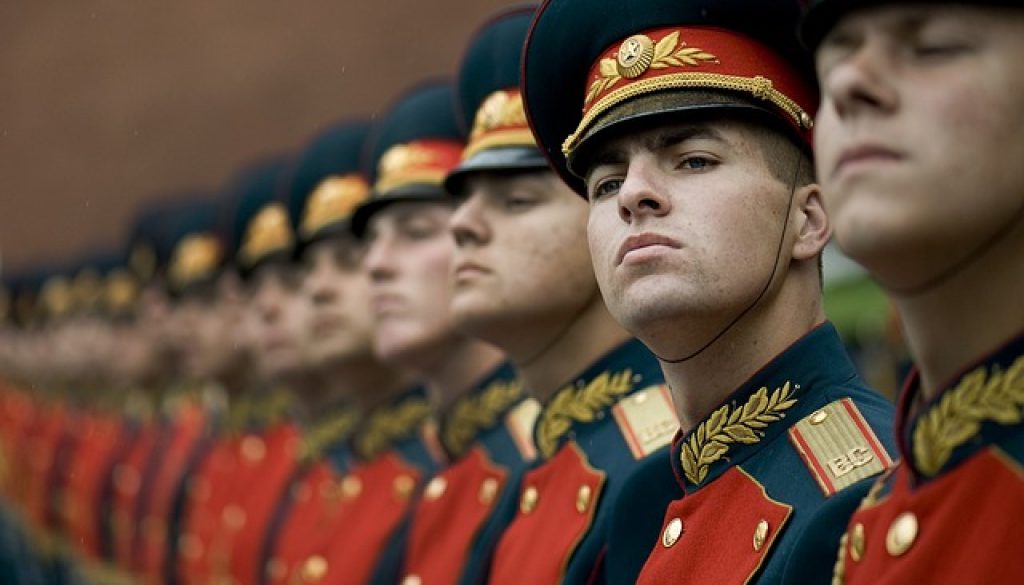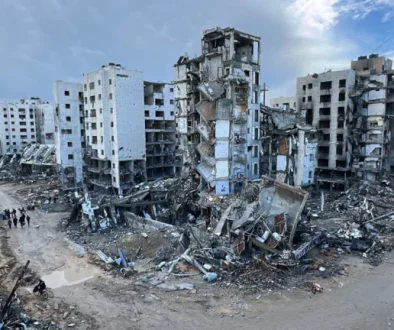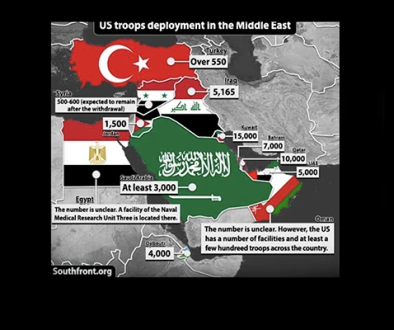Can Russia Repair Its Ties With The West and Reshape Its Foreign Policy?
Indeed, it’s true that US-Russian relations are at an all-time low at the start of this new US administration. However, this is nothing new. Relations have been poor before, and both superpowers have still managed to resurrect a mutual appreciation for common ground. Certainly, the initial sounds coming out of Washington are extremely encouraging to say the least.
Aside for avert a third world war over the crisis in Ukraine, perhaps the most pressing crisis facing Washington and Brussels is that of a flagging global economy. America and Europe could very well be facing the prospect of imploding financial markets – a calamity which could easily cascade into the developing countries, and lead to a global economic recession. On the other hand, a real and lasting détente between East and West could be the start of an age of prosperity.
Either way, the fate of the world could be predicated on the fate of US-Russian relations.

Andrew Korybko writes for Substack…
To be clear, the explanations and forecasts shared in this analysis concern the scenario of a Russian rapprochement with the West upon the successful conclusion of peace talks with the US, they’re not in any way a declaration of what will absolutely come to pass.
Trump’s proposal to return Russia to the G7 and Orban’s prediction about it being “reintegrated into…the European security system and even the European economic and energy system” after the Ukrainian Conflict ends hint at a Russian rapprochement with the West. Russian-US peace talks are underway, and if they succeed in bringing about any of the aforesaid outcomes, then this would have to be cogently accounted for as would the future of Russian foreign policy. Here are some explanations and forecasts:
* Russia Neutralized Ukrainian-Emanating Threats From NATO
The nearly three-year-long special operation saw Russia destroy all of NATO’s stockpiles that it sent to Ukraine, which could have otherwise been used to help launch a conventional proxy invasion of Russia one day had Russia not decisively stopped the bloc’s clandestine expansion into Ukraine. Although the risk of World War III spiked at times during the interim due to some very dangerous US-backed Ukrainian provocations, that risk has now largely decreased due to Russia’s victory over NATO’s Ukrainian proxy.
* Trump’s Return Revolutionized Russian-US Relations
The “Department Of Government Efficiency’s” purge of warmongering liberal-globalists, who hitherto controlled the US’ permanent military, intelligence, and diplomatic bureaucracies (“deep state”), immediately after Trump’s inauguration is responsible for the commencement of Russian-US talks. These fast-moving processes revolutionized Russian-US relations and consequently contributed to Russia recalibrating its threat assessment of the US, which in turn reopened previously closed opportunities.
* Pragmatic Mutual Compromises Are Finally Possible
While it remains to be seen exactly what form they’d take, whatever agreement might emerge from the ongoing Russian-US talks will almost certainly entail pragmatic mutual compromises, which would have become possible due to the aforesaid factors. Neither Putin nor Trump are maximalists, and both have proven their pragmatism in the past, so it’s reasonable to expect them to meet each other in the middle. The example that they set could then become the norm for resolving other states’ disputes and conflicts.
* Russia Never Rejected Cooperation With Any Country
It was the US-led West that rejected cooperation with Russia, not the inverse, since Russia always maintained that it’ll cooperate with any friendly country. For that reason, today’s enemies could become tomorrow’s partners if they reverse their unfriendly policies. After all, former enemies like Turkiye, Iran, and China are now some of Russia’s closest partners, and ties with Germany were excellent prior to 2022 despite the Nazis’ genocide of the Soviets, so the precedent exists for a rapprochement with the West.
* Its Multipolar Moves Were Always Gradual & Responsible
Apart from the special operation, which was a last-ditch attempt to safeguard Russia’s national security after NATO’s clandestine expansion into Ukraine, all of Russia’s multipolar moves were always gradual and responsible. Creating a BRICS currency for example, which Russia confirmed that it isn’t doing, could throw the fragile and interconnected order into chaos to everyone’s detriment. Any perceived slowdown of multipolar moves on its part after a rapprochement with the West would therefore be an illusion.
* Russia & Trump’s America Both Prefer Populist-Nationalists
For the first time since the end of the Old Cold War, America under Trump’s second administration now openly prefers populist-nationalist leaders and movements over liberal-globalists, which aligns with Russia’s preference from over the past decade. This convergence of interests might even see them working together in third countries as part of a new modus vivendi to liberate them from the yoke of the liberal-globalist holdovers that the US is now actively purging from its “deep state”.
* Both Are Also Favorable Towards The Rise Of Civilization-States
Professor Alexander Dugin’s prediction about the rise of civilization-states came true after Russia’s Eurasian Union took on such contours in the name of the Russian World while Trump 2.0 made claims to Canada and Greenland as part of a complementary “Fortress America” policy. They might therefore jointly support populist-nationalist movements in civilizational anchor states who endeavor to build their own similar regional spheres of influence in the emerging multipolar-civilizational world order…





